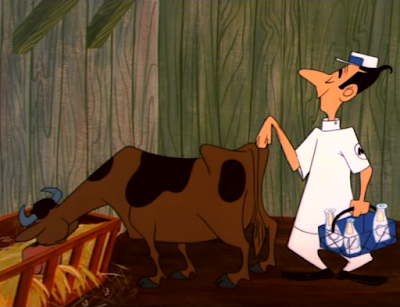Court Jester Goopy Geer (in his third cartoon) sings the song about “Old King Cole” to the King but when the revised lyrics reach the part about calling “for his crooners three,” Goopy’s marotte interrupts by specifying they’re “Crosby, Colombo and Vallee” (singing the Joe Burke and Al Dubin song of the same name).

Suddenly, Vallee pops up from a jack-in-the-box and starts crooning Burke and Dubin’s “For You.”

The king takes care of Vallee.

“I’d rather hear Amos and Andy,” growls the king.
“Oh, show (sure), Kingfish, show, show,” drawls Goopy in a not-very-good impression.

But we’re not finished with radio references yet. Some character pops his head through a transom and lets out with Tony Wons’ “Are ya listenin’?” The nervous Goopy shakes and says “Yeah. I’m Walter Windshield.”

Suddenly, bottles of liquor pop their corks in a cannon-like explosion sound. Goopy shouts, “Okay, Chicago!” and runs at an angle past the camera.

The phrase was used by Walter Winchell on his show,
The Lucky Strike Radio Hour, at the time this cartoon
The Queen Was in the Parlor, was made. In fact, it was used in advertising copy by Warner Bros. to promote a feature film of that year,
Blessed Event, which starred Lee Tracy as a Winchell-like gossip columnist. (Universal made a similar film at the time starring Lew Ayres called “Okay, America”). There’s a further connection between this cartoon and
Blessed Event—both had scores by Frank Marsales.
The title song was written by written by Sherman Myers (Montague Ewing). I haven’t found out if it was used in a Warners’ feature; this was the only cartoon it was heard in.




















































